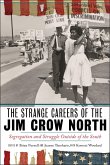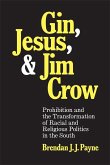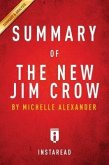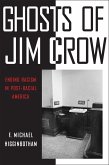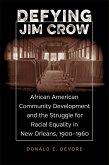White supremacy shaped all aspects of post-Civil War southern life, yet its power was never complete or total. The form of segregation and subjection nicknamed Jim Crow constantly had to remake itself over time even as white southern politicians struggled to extend its grip. Here, some of the most innovative scholars of southern history question Jim Crow's sway, evolution, and methods over the course of a century. These essays bring to life the southern men and women--some heroic and decent, others mean and sinister, most a mixture of both--who supported and challenged Jim Crow, showing that white supremacy always had to prove its power.
Jim Crow was always in motion, always adjusting to meet resistance and defiance by both African Americans and whites. Sometimes white supremacists responded with increased ferocity, sometimes with more subtle political and legal ploys. Jumpin' Jim Crow presents a clear picture of this complex negotiation. For example, even as some black and white women launched the strongest attacks on the system, other white women nurtured myths glorifying white supremacy. Even as elite whites blamed racial violence on poor whites, they used Jim Crow to dominate poor whites as well as blacks. Most important, the book portrays change over time, suggesting that Strom Thurmond is not a simple reincarnation of Ben Tillman and that Rosa Parks was not the first black woman to say no to Jim Crow.
From a study of the segregation of household consumption to a fresh look at critical elections, from an examination of an unlikely antilynching campaign to an analysis of how miscegenation laws tried to sexualize black political power, these essays about specific southern times and places exemplify the latest trends in historical research. Its rich, accessible content makes Jumpin' Jim Crow an ideal undergraduate reader on American history, while its methodological innovations will be emulated by scholars of political history generally. In addition to the editors, the contributors are Edward L. Ayers, Elsa Barkley Brown, W. Fitzhugh Brundage, Laura F. Edwards, Kari Frederickson, David F. Godshalk, Grace Elizabeth Hale, Jacquelyn Dowd Hall, Stephen Kantrowitz, Nancy MacLean, Nell Irwin Painter, and Timothy B. Tyson.
Jim Crow was always in motion, always adjusting to meet resistance and defiance by both African Americans and whites. Sometimes white supremacists responded with increased ferocity, sometimes with more subtle political and legal ploys. Jumpin' Jim Crow presents a clear picture of this complex negotiation. For example, even as some black and white women launched the strongest attacks on the system, other white women nurtured myths glorifying white supremacy. Even as elite whites blamed racial violence on poor whites, they used Jim Crow to dominate poor whites as well as blacks. Most important, the book portrays change over time, suggesting that Strom Thurmond is not a simple reincarnation of Ben Tillman and that Rosa Parks was not the first black woman to say no to Jim Crow.
From a study of the segregation of household consumption to a fresh look at critical elections, from an examination of an unlikely antilynching campaign to an analysis of how miscegenation laws tried to sexualize black political power, these essays about specific southern times and places exemplify the latest trends in historical research. Its rich, accessible content makes Jumpin' Jim Crow an ideal undergraduate reader on American history, while its methodological innovations will be emulated by scholars of political history generally. In addition to the editors, the contributors are Edward L. Ayers, Elsa Barkley Brown, W. Fitzhugh Brundage, Laura F. Edwards, Kari Frederickson, David F. Godshalk, Grace Elizabeth Hale, Jacquelyn Dowd Hall, Stephen Kantrowitz, Nancy MacLean, Nell Irwin Painter, and Timothy B. Tyson.
Dieser Download kann aus rechtlichen Gründen nur mit Rechnungsadresse in A, D ausgeliefert werden.



